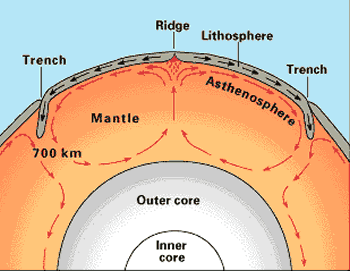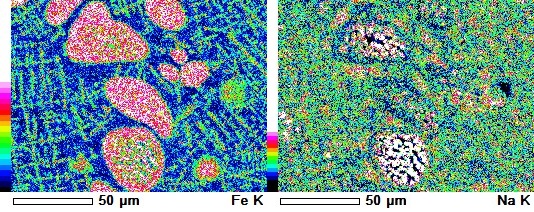In relation to a recent question of mine, this alternate Earth still has its core consisting of 84% iron, but the other 16% contains the greatest concentrations of all known species of heavy metals (defined by high atomic number and weight and a specific gravity greater than 5), including 100% of all 34 species of metals so unstable that they are radioactive, like plutonium, uranium and strontium.
There would be many questions to this scenario, but let's narrow it down to one focus--Earth's mantle. The mantle is where we find the action of convection, the reason why Earth's outer shell moves in several pieces, or plates.
In an alternate Earth where all of the radioactive metals are trapped inside the core, would this affect the process of convection in any way? If yes, how?


